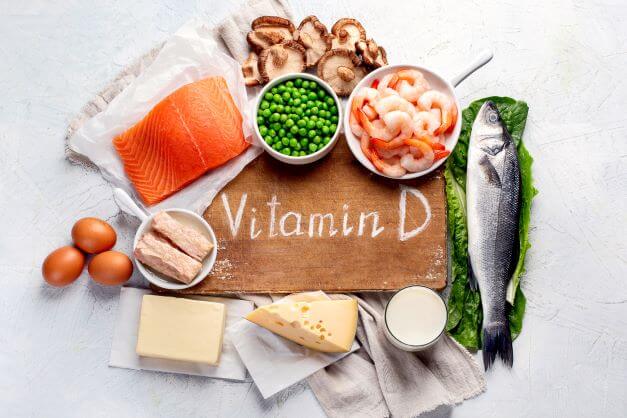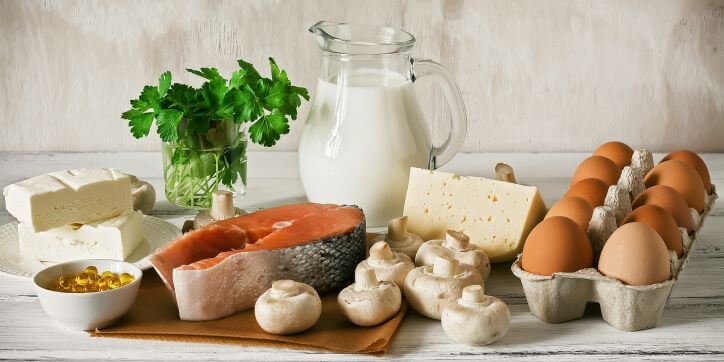
Last Updated on 8th January 2022
Your body requires a number of critical substances to function. Fortunately, since most of these vitamins can be acquired through the foods we consume, this is not an issue. Vitamin D is one such vitamin.
Vitamin D cannot be obtained through diet alone, unlike other vitamins. This is due to the fact that the majority of our vitamin D comes from sunlight. While this is an excellent method of obtaining vitamin D, it isn’t always easy to do so.
During the winter season, you’ll have to put out more effort to maintain your vitamin D levels. Vitamin D tablets and a conscious diet may aid in achieving your optimal vitamin D status.
How Is Vitamin D Unique?
It might be difficult to change your diet if you don’t know what you’re missing out on. So let’s take a look at some of vitamin D’s other benefits. Vitamin D is required for the function of the immune system. Vitamin D3 aids in the transport of calcium, which is important for muscle growth and maintenance.

Foods That Contain Vitamin D
The following food groups are widely known for containing some vitamin D.
Fish
Vitamin D is obtained through dietary intake in fatty fish including salmon, mackerel, and sardines. Vitamin D is present in fish dishes such as seafood pie and salmon salads. To ensure that they obtain enough of it, some people take cod liver oil supplements.
Salmon is a great source of vitamin D because it’s high in omega-3s and provides plenty of beta-carotene. Sardines are low in mercury and high in protein and calcium, which is vital for healthy bones and teeth.
Egg Yolk
Vitamin D is present in egg yolks. Egg yolks can be used in a variety of ways, including delectable cookie and custard pastries and savoury hollandaise sauce. Eggs are a great source of vitamin D because they’re rich in choline, which helps convert cholesterol into vitamin D.
Mushrooms
Don’t worry, the dishes ahead are also vegan-friendly! Mushrooms are high in vitamin D. Due to their versatility, mushrooms may be added to most meals. Portabellas, chanterelles, and maitake mushrooms are the most effective types to include in your diet for this reason.
Fortified Foods
This is wonderful for vegans, since many fortified meals are suitable for their diet. Cereal, milk, yoghurt, orange juice, and fat spread all provide vitamin D in adequate quantities.
Milk
Milk is an excellent source of vitamin D because it’s rich in the hormone calcitriol, which helps your body absorb calcium to build strong bones and teeth.
Spinach
Spinach is a good source of vitamin D because it contains lutein, which protects your eyes from UV rays.
Other Sources Of Vitamin D
Vitamin D is naturally present in low levels in the body. Vitamin D is primarily obtained through sunlight. Solar radiation, as previously stated, is the main source of vitamin D. Try to spend 30 minutes in the sun each day during the summer months.
If this isn’t an option, consider taking a daily vitamin D supplement to ensure that you get enough of it. Taking a vitamin D supplement, along with a healthy diet, can help you meet your vitamin D requirements during seasons of insufficient sunshine.

Why is Vitamin D important?
Vitamin D is a nutrient that’s needed for bone health and proper calcium absorption. It also helps your body absorb vitamin A, which is crucial for healthy skin and vision.
Getting enough vitamin D can be tricky, but it’s important to make sure you’re getting enough from the sun. Good sources of vitamin D are milk, fatty fish like salmon and tuna, salmon eggs, sardines or tuna eggs, egg yolks and mushrooms.
What is Vitamin D?
Vitamin D is exactly what it sounds like—a vitamin your body needs to stay healthy. It’s important for the body to absorb calcium and phosphorus so you can maintain bone health. Vitamin D also helps regulate hormones, including those involved in growth, metabolism and brain function.
It’s important to get enough of this vitamin because it plays an important role in the immune system, which helps fight off infections and illness.
In order to get enough vitamin D, you’ll need both sun exposure and food sources. Foods that are good sources of vitamin D include salmon, mackerel, sardines, tuna, cod liver oil and egg yolks.
Conclusion
The importance of Vitamin D cannot be understated. Your body can only produce it when your skin is exposed to the sun. If you live in a place with little to no sun exposure, you may find it difficult to get the Vitamin D your body needs.
While there aren’t any foods that are a “big-time” Vitamin D producer, these foods contain a lot of Vitamin D, which is helpful for those who are looking for an easy way to get more Vitamin D in their diet.

































